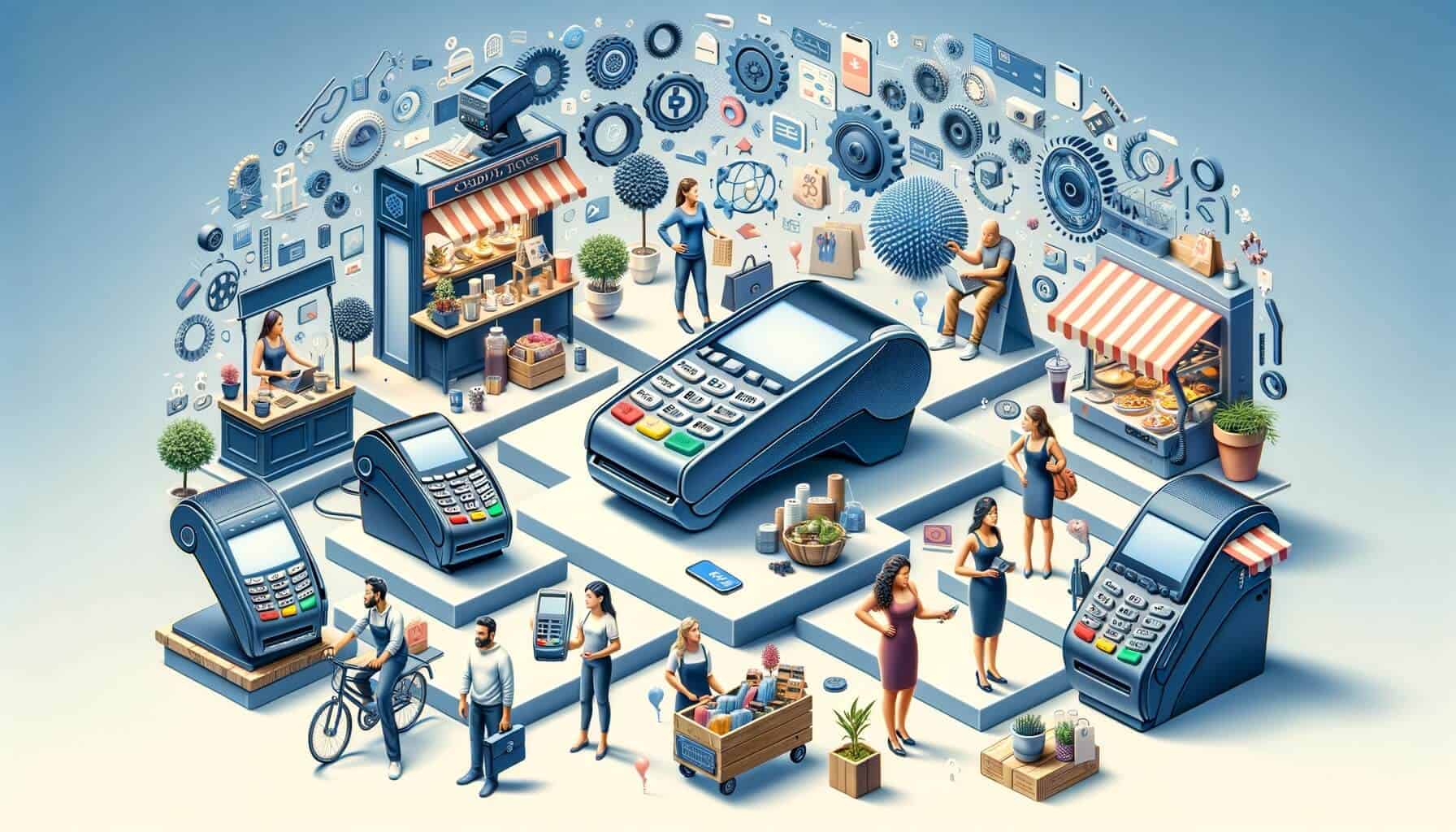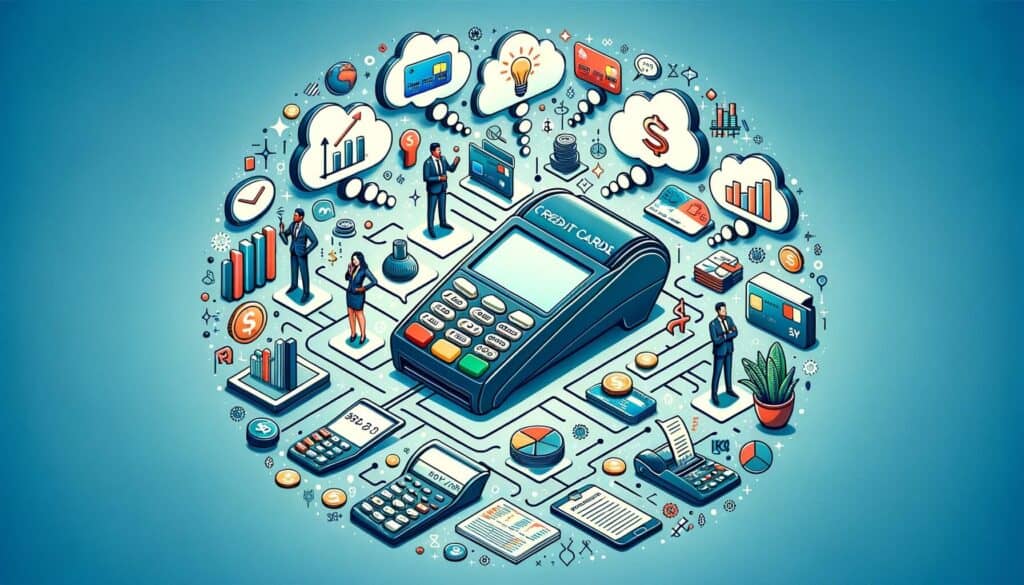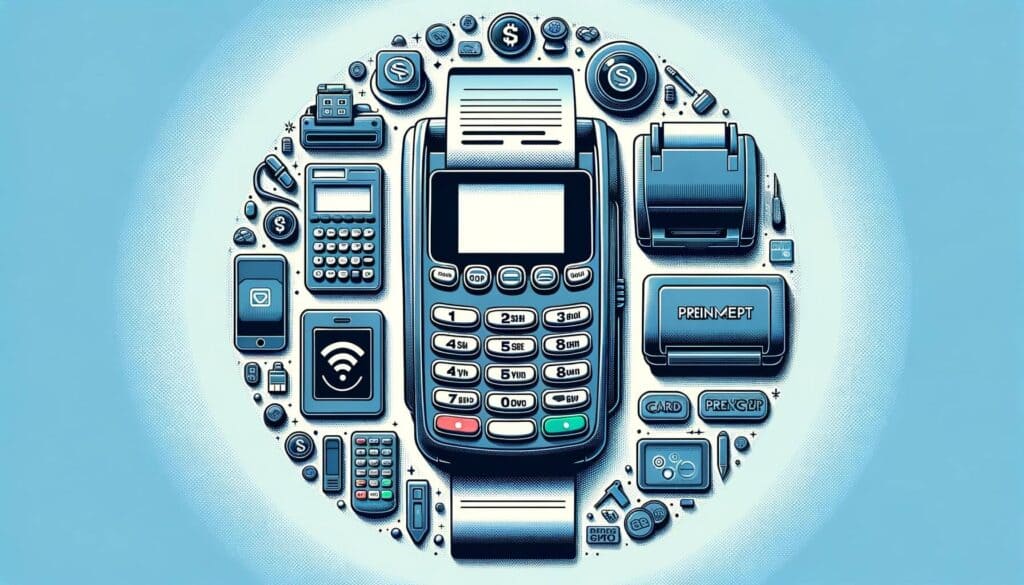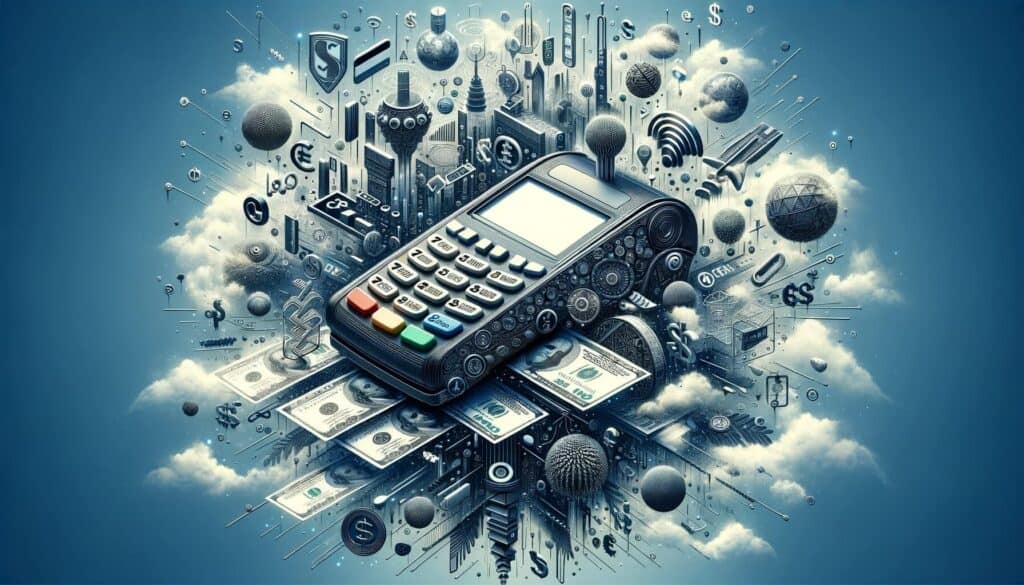
By Crystal Hopkins March 31, 2025
In today’s digital age, accepting credit card payments is essential for businesses of all sizes. Whether you run a small retail store or a large e-commerce platform, having a reliable and efficient credit card machine is crucial for smooth transactions and customer satisfaction. However, with numerous options available in the market, choosing the best credit card machine for your business can be a daunting task.
This comprehensive guide will walk you through the factors to consider, types of credit card machines, key features to look for, cost evaluation, payment processing and security, compatibility and integration options, and a step-by-step guide to help you make an informed decision.
Factors to Consider When Choosing a Credit Card Machine for Your Business

Before diving into the different types of credit card machines, it’s important to understand the factors you should consider when making a decision. These factors will help you narrow down your options and choose a credit card machine that aligns with your business needs. Here are some key factors to consider:
1. Business Type and Size: The nature and size of your business play a significant role in determining the type of credit card machine you should choose. For instance, if you have a brick-and-mortar store, a countertop terminal might be suitable, while an e-commerce business might require a virtual terminal or mobile card reader.
2. Payment Volume: Consider the average number of credit card transactions your business processes daily. If you have a high volume of transactions, you might need a credit card machine with faster processing capabilities and a higher transaction limit.
3. Connectivity Options: Determine the type of connectivity options available in your business location. Credit card machines can be connected via Ethernet, Wi-Fi, or cellular networks. Choose a machine that is compatible with your existing infrastructure.
4. Security Features: Protecting your customers’ sensitive payment information should be a top priority. Look for credit card machines that comply with Payment Card Industry Data Security Standard (PCI DSS) requirements and offer encryption and tokenization features.
5. Customer Support: Consider the level of customer support provided by the credit card machine provider. Look for a provider that offers 24/7 technical support and assistance to ensure smooth operations.
6. Cost: Evaluate the upfront cost, transaction fees, and any additional charges associated with the credit card machine. Compare pricing structures of different providers to find the most cost-effective option for your business.
Types of Credit Card Machines: A Comprehensive Overview
Credit card machines come in various types, each catering to different business needs. Understanding the different types will help you choose the one that suits your business operations. Here are the most common types of credit card machines:
1. Countertop Terminals: These are stationary credit card machines typically found at the checkout counters of retail stores. They are connected to a phone line or internet connection and allow customers to swipe, insert, or tap their cards for payment.
2. Mobile Card Readers: Ideal for businesses on the go, mobile card readers connect to smartphones or tablets via Bluetooth or audio jack. They are portable and enable businesses to accept payments anywhere, making them suitable for food trucks, delivery services, and trade shows.
3. Virtual Terminals: Virtual terminals are web-based applications that allow businesses to process credit card payments through a computer or laptop. They are commonly used for mail or phone orders, as well as online businesses that require manual entry of card details.
4. Point-of-Sale (POS) Systems: POS systems combine hardware and software to provide a comprehensive solution for businesses. They include a touchscreen display, cash register, barcode scanner, and credit card reader. POS systems are suitable for businesses with complex inventory management needs, such as restaurants and retail stores.
5. Wireless Terminals: Wireless terminals operate on cellular networks and are not dependent on a physical connection. They are ideal for businesses that require mobility within their premises, such as restaurants with outdoor seating or businesses that participate in trade shows.
Key Features to Look for in a Credit Card Machine

When choosing a credit card machine, it’s important to consider the key features that will enhance your business operations and provide a seamless payment experience for your customers. Here are some essential features to look for:
1. EMV Chip Card Reader: With the transition to EMV chip cards, it’s crucial to have a credit card machine that can process chip card transactions. Look for a machine that supports both chip and magnetic stripe cards to ensure compatibility with all payment methods.
2. Near Field Communication (NFC) Capability: NFC technology enables contactless payments, allowing customers to make payments by simply tapping their cards or mobile devices. Look for a credit card machine that supports NFC payments to cater to customers who prefer this convenient payment method.
3. Receipt Printing Options: Consider whether you need a credit card machine that can print paper receipts or if digital receipts via email or SMS are sufficient for your business. Some machines offer both options, providing flexibility for your customers.
4. Touchscreen Display: A user-friendly touchscreen display makes it easier for your staff to navigate through the payment process. Look for a credit card machine with a responsive and intuitive touchscreen interface.
5. Integration with POS Systems: If you already have a POS system in place, ensure that the credit card machine you choose is compatible and can seamlessly integrate with your existing system. This integration will streamline your operations and simplify inventory management.
6. Offline Mode: In case of internet or network connectivity issues, having a credit card machine with an offline mode can ensure uninterrupted payment processing. Look for a machine that can store transactions and process them once the connection is restored.
Evaluating the Cost and Pricing Structure of Credit Card Machines

Understanding the cost and pricing structure of credit card machines is crucial to avoid any unexpected expenses and ensure that you choose a machine that fits your budget. Here are the key aspects to consider when evaluating the cost:
1. Upfront Cost: Some credit card machine providers charge an upfront cost for the hardware. Consider your budget and compare the upfront costs of different providers to find the most affordable option.
2. Transaction Fees: Transaction fees are charged for each credit card transaction processed through the machine. These fees can vary depending on the provider and the type of transaction (swiped, chip, or online). Compare the transaction fees of different providers to find the most cost-effective option for your business.
3. Monthly Fees: Some providers charge monthly fees for the use of their credit card machines. These fees can include maintenance, software updates, and customer support. Evaluate the monthly fees and consider the value provided by the provider to determine if the fees are justified.
4. Additional Charges: Be aware of any additional charges that may apply, such as setup fees, cancellation fees, or PCI compliance fees. Read the terms and conditions carefully to avoid any surprises.
5. Contract Length: Some providers require businesses to sign a contract for a specific period. Consider the contract length and any associated early termination fees before committing to a provider. If possible, opt for providers that offer month-to-month contracts for flexibility.
Understanding Payment Processing and Security with Credit Card Machines
Payment processing and security are critical aspects to consider when choosing a credit card machine. Ensuring that your customers’ payment information is secure and that transactions are processed efficiently is essential for building trust and protecting your business. Here are some key points to consider:
1. Payment Processing Speed: The speed at which transactions are processed can impact customer satisfaction and the efficiency of your business operations. Look for a credit card machine that offers fast processing speeds to minimize waiting times for your customers.
2. Payment Gateway Integration: If you have an online business, ensure that the credit card machine you choose integrates seamlessly with your payment gateway. This integration will enable secure online transactions and simplify the payment process for your customers.
3. PCI DSS Compliance: Payment Card Industry Data Security Standard (PCI DSS) compliance is essential for protecting your customers’ payment information. Choose a credit card machine that meets the necessary security requirements to ensure that your business is compliant and that sensitive data is safeguarded.
4. Encryption and Tokenization: Look for credit card machines that offer encryption and tokenization features. Encryption ensures that payment data is securely transmitted, while tokenization replaces sensitive card information with unique tokens, further enhancing security.
5. Fraud Prevention: Consider the fraud prevention measures offered by the credit card machine provider. Look for features such as address verification, card verification value (CVV) checks, and real-time fraud monitoring to protect your business from fraudulent transactions.
Assessing Compatibility and Integration Options for Your Business
Compatibility and integration options are crucial factors to consider when choosing a credit card machine. Ensuring that the machine seamlessly integrates with your existing systems and software will streamline your operations and enhance efficiency. Here are some points to consider:
1. POS System Integration: If you already have a POS system in place, ensure that the credit card machine you choose can integrate with it. This integration will enable automatic syncing of sales data, inventory management, and streamlined reporting.
2. E-commerce Platform Integration: If you operate an online business, consider the compatibility of the credit card machine with your e-commerce platform. Look for providers that offer plugins or APIs for popular platforms such as Shopify, WooCommerce, or Magento.
3. Accounting Software Integration: Streamlining your accounting processes is essential for efficient financial management. Look for credit card machines that integrate with popular accounting software such as QuickBooks or Xero to automate transaction reconciliation and reporting.
4. Inventory Management Integration: If inventory management is a crucial aspect of your business, consider credit card machines that integrate with inventory management software. This integration will enable real-time inventory updates and automatic stock level adjustments.
5. CRM Integration: Customer relationship management (CRM) software helps businesses manage customer interactions and improve customer satisfaction. Look for credit card machines that integrate with your CRM software to streamline customer data and enhance personalized experiences.
Comparing Top Credit Card Machine Providers in the Market
Now that you have a clear understanding of the factors to consider and the key features to look for, it’s time to compare the top credit card machine providers in the market. Here are some leading providers to consider:
1. Square: Square offers a range of credit card machines, including countertop terminals, mobile card readers, and POS systems. They are known for their user-friendly interface, transparent pricing, and seamless integration with various platforms.
2. PayPal Here: PayPal Here provides mobile card readers that connect to smartphones or tablets. They offer competitive transaction fees, quick setup, and integration with PayPal’s online payment system.
3. Clover: Clover offers a comprehensive range of credit card machines, including countertop terminals, mobile card readers, and POS systems. They are known for their advanced features, customization options, and integration with various business management tools.
4. Shopify POS: Shopify POS provides a complete solution for businesses, combining hardware and software. They offer a range of credit card machines, including countertop terminals and mobile card readers, with seamless integration with their e-commerce platform.
5. First Data: First Data is a leading provider of credit card machines, offering a wide range of options to suit different business needs. They are known for their robust security features, reliable customer support, and compatibility with various payment processors.
Step-by-Step Guide: How to Choose the Best Credit Card Machine for Your Business
Now that you have a comprehensive understanding of the factors to consider, types of credit card machines, key features, cost evaluation, payment processing and security, compatibility and integration options, and top providers, here is a step-by-step guide to help you choose the best credit card machine for your business:
1. Assess Your Business Needs: Determine the nature and size of your business, average transaction volume, and connectivity options available.
2. Identify the Type of Credit Card Machine: Based on your business needs, choose the most suitable type of credit card machine, such as a countertop terminal, mobile card reader, virtual terminal, or POS system.
3. Evaluate Key Features: Consider the essential features you require, such as EMV chip card reader, NFC capability, receipt printing options, touchscreen display, integration options, and offline mode.
4. Research Providers: Compare the top credit card machine providers in the market, considering factors such as pricing, transaction fees, customer support, and compatibility with your existing systems.
5. Read Reviews and Seek Recommendations: Read customer reviews and seek recommendations from other business owners in your industry to gain insights into the reliability and performance of different credit card machines and providers.
6. Request Demos and Trials: Contact the shortlisted providers and request demos or trials of their credit card machines. This will allow you to test the user interface, processing speed, and compatibility with your systems.
7. Evaluate Pricing Structure: Compare the upfront cost, transaction fees, monthly fees, and any additional charges associated with each provider. Consider the long-term cost implications and choose the most cost-effective option.
8. Consider Security and Compliance: Ensure that the credit card machine and provider comply with PCI DSS requirements and offer encryption and tokenization features to protect your customers’ payment information.
9. Assess Integration Options: If you have existing systems such as POS, e-commerce, accounting, or inventory management software, ensure that the credit card machine can seamlessly integrate with them to streamline your operations.
10. Make an Informed Decision: Based on your evaluation of the factors, features, pricing, security, and integration options, make an informed decision and choose the credit card machine and provider that best align with your business needs.
Frequently Asked Questions (FAQs) about Credit Card Machines
Q.1: What is the difference between a credit card machine and a payment gateway?
Answer: A credit card machine is a physical device used to accept credit card payments, while a payment gateway is an online service that securely transmits transaction data between the credit card machine and the payment processor.
Q.2: Can I use my existing credit card machine with a new provider?
Answer: In some cases, you may be able to use your existing credit card machine with a new provider if it is compatible. However, it’s recommended to check with the new provider to ensure compatibility and avoid any potential issues.
Q.3: Are there any hidden fees associated with credit card machines?
Answer: Some credit card machine providers may have hidden fees such as setup fees, cancellation fees, or equipment rental fees. It’s important to read the terms and conditions carefully and ask the provider about any potential hidden fees.
Q.4: How long does it take to set up a credit card machine?
Answer: The setup time for a credit card machine can vary depending on the provider and the type of machine. Some providers offer quick and easy setup processes, while others may require more time for installation and configuration.
Q.5: Can I accept international credit cards with a credit card machine?
Answer: Most credit card machines are capable of accepting international credit cards. However, it’s important to check with the provider to ensure that their services support international transactions and comply with the necessary regulations.
Conclusion
Choosing the best credit card machine for your business is a critical decision that can impact your operations, customer experience, and overall success. By considering factors such as business type and size, payment volume, connectivity options, security features, and integration capabilities, you can narrow down your options and make an informed decision.
Evaluate the cost and pricing structure, understand payment processing and security measures, and assess compatibility with your existing systems. Follow the step-by-step guide outlined in this article to choose the credit card machine that best suits your business needs, budget, and growth plans. With the right credit card machine in place, you can streamline your payment processes, enhance security, and provide a seamless experience for your customers.